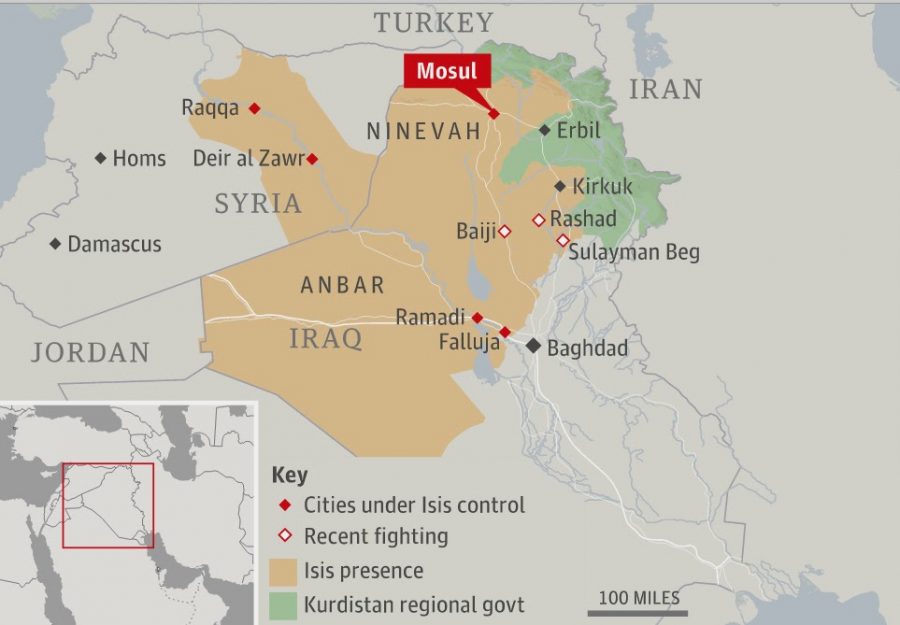 Hassan Sayed ’15
Hassan Sayed ’15
The past summer was certainly eventful for Middle Eastern news.
Israel began launching assaults yet again against Palestine. The civil war in Syria continued to develop. One of the newer stories, however, was the growth of ISIS (or ISIL), The Islamic State of Iraq and Syria (or the Islamic State of Iraq and the Levant), an extremist terrorist group that made significant gains in controlling parts of Syria and Iraq over the past few months.
Though ISIS was founded in Iraq in 2003, it did not begin making large headlines until early June of 2014, when it seized control of Iraq’s second most populous city, Mosul. At this point, its membership was estimated to be in a few thousands; however, it soon became obvious that the number was much, much larger. Numerous attacks on the organisation by Iraq, Syria, and Turkey hampered their efforts at capturing other cities such as Samarra. On 29 June, it officially declared a caliphate, a Muslim State ruled by Islamic Law system; the establishment of the caliphate was the first caliphate to exist since the demise of the Ottoman Empire in the early 20th century.
By August, ISIS’s members numbered at about 50,000; coupled with the beheading of American journalist James Foley on video, the United States and much of the Western world suddenly began to take ISIS’s threat more seriously, with the US Military initiating airstrikes and other nations such as Germany and the UK also sending in aide the Iraqi military to fight against the terrorist organisation.
ISIS poses a threat, most critically to the thousands upon thousands of civilians who have either been killed or have had to flee from its advances. And, quite frankly, there needs to be some level of intervention to break the tide against ISIS. However, what needs to be determined is who will take action against the group and what exactly that action will be; will it involve the employment of ground troops, the waging of a proxy war, or a conflict waged by airstrikes and
drones?
The Middle East is a sensitive area, and western powers admittedly have a history of having specific interests and goals in the region (particularly Israel and oil, both of which are in proximity to the regions ISIS controls). However, interests need to be thrown aside and disregarded. Action should not be taken against ISIS because it threatens oil interests, but rather because there are millions of innocents in Iraq, Syria, Lebanon, Palestine, and many other countries that are at risk due to the actions of the organisation. As a result, to prevent the conflict from becoming unilateral in favour of the interests of one nation, a United Nations staged intervention composed of UN Security Forces aiding in the fight against ISIS should be implemented to protect civilians and crumble ISIS’s grasp on the region.
ISIS has but added to many of constant threats that Syrians and Iraqis face every day. The best course of action is to put their well being over our own.





